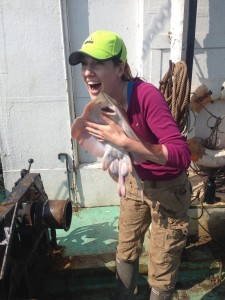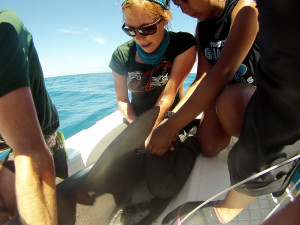
Foghorn (A Call to Action!)
- Some light, but useful, advice: Don’t Burn Driftwood at the Beach (or Anywhere).
Flotsam (what we’re obsessed with right now)
- Good news everybody! Canada bans deep-sea mining, oil and gas drilling in marine protected areas.

- The Tough Sell of Turtle-Saving Tech (and check out David’s article from… a very long time ago: Turtle excluder devices: analysis of resistance to a successful conservation policy).


 Rachel Skubel graduated with an M.Sc. in Environmental Science from McMaster University where she studied climate impacts on water cycling in temperate forests, and a B.Sc. from the University of Western Ontario. Her current research interests revolve around how oceanic predators will be impacted by anthropogenic environmental changes. She is a currently a shark research intern with Dr. Neil Hammerschlag’s lab at the University of Miami.
Rachel Skubel graduated with an M.Sc. in Environmental Science from McMaster University where she studied climate impacts on water cycling in temperate forests, and a B.Sc. from the University of Western Ontario. Her current research interests revolve around how oceanic predators will be impacted by anthropogenic environmental changes. She is a currently a shark research intern with Dr. Neil Hammerschlag’s lab at the University of Miami. 

